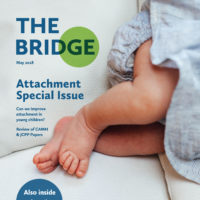Research digest
-

European experts develop a new framework to screen early ASD
Early detection of Autism Spectrum Disorder (ASD) can improve outcomes for children, yet the effectiveness and validity of universal screening methods has been questioned. Now, researchers have created a new framework to generate a valid early ASD screening method using a novel approach based on “face and content validity”.
Read more -

Early social communication intervention reduces autism severity in young infants
The first, very early social communication intervention for infants at high risk of autism shows promise to reduce the overall severity of early symptoms and a capacity to positively enhance parent–child social interactions.
Read more -

The challenge: Getting research interventions into community where they are needed
This article is a summary of the paper published in JCPP – Hybrid implementation model of community‐partnered early intervention for toddlers with autism: a randomized trial.
Read more -

Parents should keep talking to boost infant language development
Children from low socioeconomic status (SES) backgrounds tend to have poorer language skills when starting school than those from higher SES backgrounds. Now, data shows that increasing the amount of “contingent talk”— whereby a caregiver talks about objects that an infant is directly focusing on — within an infant’s first year of life promotes a wide vocabulary later in infancy.
Read more -

Language stability in primary school-aged children hinders catch up for those with language disorders
In 2017, the Journal of Clinical Psychology and Psychiatry published the latest results of the Surrey Communication and Language in Education Study (SCALES), in which Courtenay Frazier Norbury and colleagues investigated language growth and stability in a population cohort of children with varying degrees of verbal and nonverbal cognitive abilities and a wide range of additional diagnoses.
Read more -

The quality of autism intervention studies must improve to ensure validity
The past decade has seen a rise in the number of international reviews of autism spectrum disorder (ASD) interventions, but confusingly, many of these reviews come to different conclusions or only assess selected forms of intervention.
Read more -

What makes an autistic child socially successful?
Although many studies document the ways in which children with ASD differ from typically developing children, few have highlighted the strengths and abilities of children with ASD.
Read more -

Early ASD intervention promotes academic achievement
Rigorous screening for learning difficulties is required for adolescents with Autism Spectrum Disorder (ASD), as a significant minority of affected individuals with average cognitive skills show academic delays, according to a new study.
Read more -

Compensating for ASD: masking the truth?
“Compensation” is a phenomenon by which individuals with Autism Spectrum Disorder (ASD) show improvements in overt symptoms, namely their understanding of others (“theory-of-mind”, ToM), despite persisting deficits at the cognitive and neurobiological levels.
Read more -

The Attachment Issue
Welcome to the May 2018 edition of the Bridge. This edition is themed around attachment in young children.
Read more